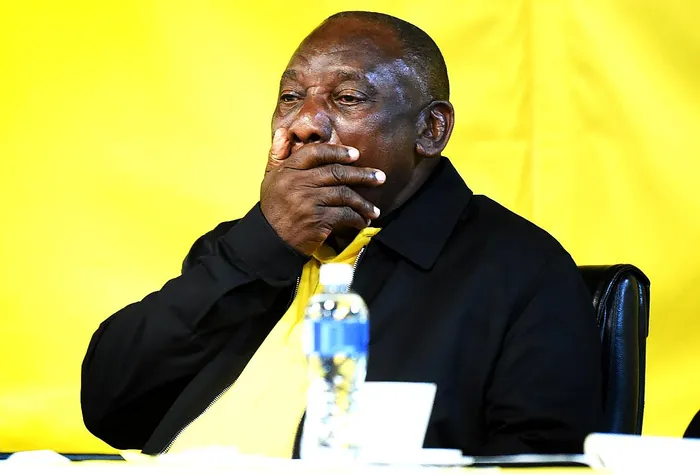
The president'santi-corruption stance has completely lost relevance, especially when he continues to protect ministers implicated by the Zondo Commission of inquiry into state capture, says the writer.
Image: Itumeleng English/ Independent Newspapers
‘SOUTH Africa is serious about fighting financial crime and corruption’ is the headline that greets the reader to President Cyril Ramaphosa’s most recent newsletter last Monday.
It relates to South Africa finally exiting the Financial Action Task Force (FATF) grey list, a decision he says demonstrates that the country’s anti-money laundering system is beginning to act against corruption and other financial crimes.
“The state capture era led to a near hollowing out of state capacity and the weakening of key institutions involved in upholding the integrity of our financial system. But we are steadily rebuilding them.”
This commitment would be believable coming from anyone other than the president at this moment. In fact, Ramaphosa’s anti-corruption stance has completely lost relevance, especially when he continues to protect ministers implicated by the Zondo Commission of inquiry into state capture.
Take the case of Mineral Resources Minister Gwede Mantashe. He recently suffered a huge blow when the high court dismissed his bid to challenge parts of the Zondo Commission’s finding that he should face a corruption investigation over the Bosasa matter.
Mantashe recently traveled with Ramaphosa as part of a South African delegation on an official visit to Asia. Ramaphosa has publicly said little if anything about Mantashe’s future in light of the recent court outcomes.
Regardless of his view on the matter, we have come to know with certainty that we will not act.
Thankfully a commission came to the conclusion against Mantashe, otherwise he wouldn't hesitate to establish another inquiry to investigate.
What the President says about “steadily rebuilding” the country’s key institutions flies in the face of his commitment to decisively deal with corruption. It only matters depending on who is implicated in wrongdoing.
Rebuilding these institutions is meaningless without strong law enforcement. The Madlanga Commission and the Parliamentary Ad Hoc Committee have laid bare political interference in the country’s law enforcement agencies, particularly SAPS.
At the centre of it all is police minister Senzo Mchunu, whom Ramaphosa failed to suspend pending the outcomes of the inquiries.
The two examples of Mantashe and Mchunu are enough to disqualify the president from claiming to champion the fight against corruption.
CAPE TIMES